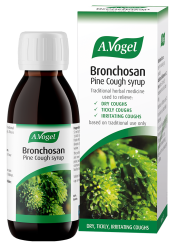What caused hacking cough earlier this year?
Hacking cough was a nasty virus that spread across the country earlier this year, causing a painful cough that could linger for weeks.
Experts say it was likely to have been caused by adenovirus, which is also responsible for infections like bronchitis, pneumonia and gastroenteritis. This virus can be particularly stubborn, so doctors could not treat the hacking cough with antibiotics or any other type of medicine.
Could hacking cough return this winter?
Unfortunately, there is no reason why hacking cough could not return this year, since the virus that caused it is still out there. However, if everyone takes a few precautions, hopefully we can avoid another widespread outbreak like the one we saw in January and February of this year.
What precautions can you take against hacking cough?
To reduce your chances of catching the adenovirus responsible for hacking cough, there are a few precautions you can take. This will not only keep you safe, but also those around you. You’ll want to focus both on strengthening your immune system and reducing your exposure to the virus.
1. Wash your hands. This is one of the most obvious tips, but one that people are surprisingly bad at, according to a recent BBC report. Make sure you wash your hands regularly throughout the day, especially after visiting the bathroom and before eating food. Investing in a disinfecting hand gel is a great way to keep your hands clean without having to nip to the bathroom all the time. Make sure to use this after touching surfaces on public transport, after coming into contact with children, or after using shared equipment such as gym machines or shared computers.
2. Vitamin C. Make sure to keep your vitamin C levels topped up each day, especially as winter approaches. It’s best to top up regularly throughout the day, rather than taking one huge dose. You’ll get vitamin C from fruits like oranges, tangerines, raspberries and strawberries, as well vegetables like broccoli, red peppers, kale and Brussels sprouts.
If you’re looking for an extra boost, you can try our own Nature-C vitamin C supplement, which provides 100mg per tablet, and sources vitamin C from natural sources like passion fruit, blackcurrant and acerola.
A.Vogel Chewable Nature-C vitamin C tablets for Immune Support*, from natural fruit sources, 36 tablets
£9.99 (36 tablets) In Stock Get it tomorrow, 4th July.
3. Be extra cautious around those with coughs. It might be tough, but if a family member or friend has a cough, try to keep your distance. This doesn’t mean you have to avoid them altogether, just try to avoid hugging, kissing or cuddling where you can.
4. Don’t smoke. You’ve probably heard this hundreds of times, but smoking is so bad for you immune system and respiratory system. It damages the lining of your respiratory tract, making it more vulnerable to infection, and strips vitamin C from the body, weakening your overall immune function.
5. Maintain a generally good diet. While vitamin C is important for immune function, so are a number of other vitamins and minerals including zinc, vitamin D and B vitamins. Make sure your diet is rich in a wide range of veggies, healthy fats, protein and complex carbohydrates. You should also try to limit your intake of refined sugar, processed foods and alcohol. Read more about diet and the immune system here.
6. Exercise more. You might not associate exercise with immune function, but it’s actually a very important factor. Exercising boosts circulation, helping to send immune cells all around the body in search of pathogens. It also helps to reduce the risk of issues like obesity and heart disease, which can also affect the immune system.
7. Drink plenty of water. Another one you might not associate with immune function. Staying hydrated will support your mucus production, which is a vital part of your defence system. Mucus helps to trap dirt, dust and pathogens and then move them safely out of the respiratory system.
 8. Take Echinacea. Echinacea has been traditionally used to strengthen the immune system, so it’s a great one to take throughout the winter months to prevent infection or reduce the severity of your symptoms if you do catch one. Some people opt for Echinacea tea, but you’ll also find fresh, organic Echinacea extracts in our Echinaforce products, licenced for the relief of cold and flu symptoms.
8. Take Echinacea. Echinacea has been traditionally used to strengthen the immune system, so it’s a great one to take throughout the winter months to prevent infection or reduce the severity of your symptoms if you do catch one. Some people opt for Echinacea tea, but you’ll also find fresh, organic Echinacea extracts in our Echinaforce products, licenced for the relief of cold and flu symptoms.
How to treat hacking cough
If you’re one of the unlucky ones and do end up catching a hacking cough, then I’ve got some tips to help you recover.
Doctors’ advice from earlier in the year was to stay at home, rest and drink plenty of water, so it’s likely that the same advice will apply this year. However, doctors generally suggested visiting your GP if your cough lasts for more than three weeks, if you have other conditions such as asthma, if you are over 60 or if you are experiencing a fever, shortness of breath or are coughing up blood. Read more about when to see a doctor about your cold or flu here.
My other tips for recovering from a hacking cough include:
- Don’t be afraid to take some time off work while you recover – your colleagues will certainly thank you for it!
- Keep up your vitamin C intake, eat plenty of nutritious food, and drink at least 1.5 litres of water a day.
- Drink honey and lemon to soothe your throat and ease night-time coughing
- Use our Cough Spray to soothe your cough. It contains soothing honey, mullein and marshmallow and is perfect while you’re out and about
- Take Echinacea to support your immune system to fight the underlying infection.





-new-web-carton.png?m=1710946347)



